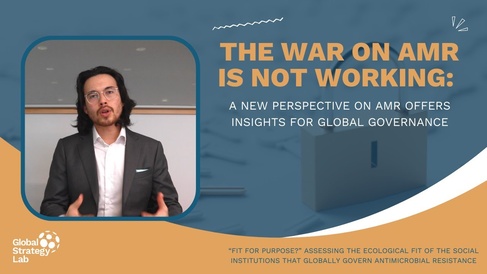
A more sustainable level of antimicrobial resistance (AMR) can be achieved by governing it as a socio-ecological challenge, Dr Steven Hoffman and LML Senior Research Associate Dr Isaac Weldon argue.
In their paper, they look at antimicrobial resistance (AMR) as the outcome of the relationship between human societies and invisible microbial worlds. Over the past century, the discovery of antimicrobials has changed how we live with germs, shifting our relationship with them. The article asks, “Is our current system of global governance capable of sustainably managing the relationship between these two worlds?” It answers this question by looking at how well human societies fit with the basic features of microbial ecosystems, similar to checking if a key fits a lock.
With this shift in perspective, the article identifies problems in our current approach to global AMR governance and introduces principles for creating new institutions that can reduce drug resistance and increase our chances of achieving sustainable antimicrobial use for all.
The authors introduce five new principles for building institutions to better harmonize the relationship between human microbial ecosystems, while maintaining our ability to treat infectious disease:
- There’s no silver bullet. Recognizing that there is no easy fit or one-fits all solution for AMR means problem-solving must always be tailored to specific ecological situations and health challenges of diverse populations.
- Create institutions that can adapt over time. Future proofing doesn’t mean creating institutions that are strong enough to withstand change, but ones flexible enough to evolve with the changing nature of AMR and our relationship to it.
- Diversify practices. As the best way to tackle AMR is still unknown, diversifying practices can help us discover what works, when, and where.
- Create records. As practices are diversified, records need to be kept of what works to enable learning and adjustments in policy.
- Involve stakeholders. This involves everyone from the public at large, to government and decision makers.
The article can be found here.
See Isaac talk about this publication here.
